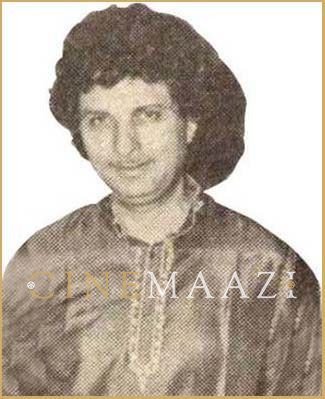Pandit Shivkumar Sharma

Subscribe to read full article
This section is for paid subscribers only. Our subscription is only $37/- for one full year.
You get unlimited access to all paid section and features on the website with this subscription.
Not ready for a full subscription?
You can access this article for $2 , and have it saved to your account for one year.
- Born: 13 January , 1938 (Jammu)
- Died: 10 May, 2022 (Mumbai)
- Primary Cinema: Hindi
- Parents: Uma Dutt Sharma
- Spouse: Manorama Sharma
- Children: Rahul Sharma, Rohit Sharma
Music composer and santoor player par excellence, Pandit Shivkumar Sharma is renowned for making the multi-stringed santoor, a folk instrument hitherto used mostly as an accompaniment, a popular classical instrument enjoying a solo role of its own. Born January 13, 1938, in Jammu, he was five when he started learning music under the guidance of his father, Uma Dutt Sharma, who was a skilled Hindustani vocalist as well as tabla and pakhavaj player of the Benaras gharana. By the time Shivkumar was 12 he was accomplished enough as a singer and tabla player to perform for the local radio station in Jammu. He was in his teens when he was introduced by his father to the sanṭoor, a multi-stringed musical instrument which was used in the Sufi music of the Kashmir region. Sharma was encouraged by his father to focus on the santoor, and its use in Hindustani music, going on to give his first major public performance on the santoor in 1955. In response to criticism from traditionalists about the drawbacks of the santoor in the Hindustani classical music space, he worked to bring in changes in its melodic range, arrangement, tuning and his own playing technique. His consistent efforts eventually saw the santoor being widely accepted into the Hindustani tradition.
Foraying into film music, Pandit Shivkumar Sharma composed the background music for a scene in V Shantaram's Jhanak Jhanak Payal Baje (1955). Going by the name Shiv-Hari, he collaborated with noted flautist Hariprasad Chaurasia to compose music for films such as Silsila (1981), Faasle (1985), Vijay (1988), Chandni (1989), Lamhe (1991), Parampara (1993), Sahibaan (1993), and Darr (1993). All these films were musical hits. Shiv-Hari were also nominated for the Filmfare Best Music award for Silsila, Chandni and Darr.
Shivkumar Sharma and Hariprasad Chaurasia had first collaborated in 1967, when they recorded the album Call of the Valley. An Indian classical music album, it incorporated innovative use of the guitar by Brij Bhushan Kabra, and was deemed fresh yet unusual. Going on to gain popularity especially in the Western world, it became one of the most successful albums of Indian classical music.
Pandit Sharma had recorded his first solo album in 1960. He released numerous albums of Hindustani santoor music, including The Last Word in Santoor (2009), in addition to experimental works in New Age music such as The Elements: Water (1995).
Pandit Shiv Kumar Sharma has been honoured with several national and international awards, such as an honorary citizenship of the city of Baltimore, USA, the Sangeet Natak Akademi Award in 1986, the Padma Shri in 1991, and the Padma Vibhushan in 2001. In 2002, he published his autobiography, Journey with a Hundred Strings: My Life in Music (with Ina Puri).
Married to Manorama Sharma, the couple has two sons, Rahul Sharma, who is also a santoor player, and Rohit Sharma.
Pandit Shivkumar Sharma breathed his last on 10 May, 2022 in Mumbai due to cardiac arrest. He was 84.







.jpg)



